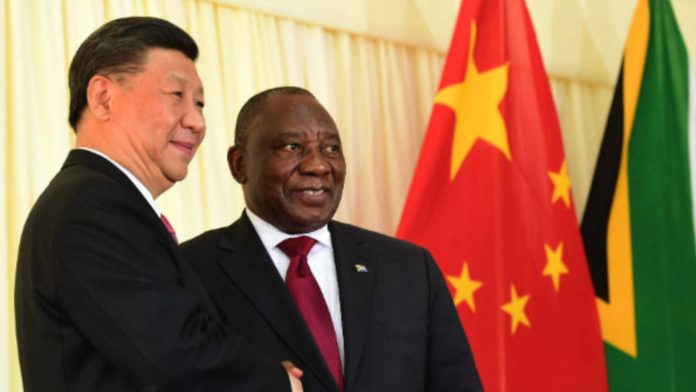The extension of the Belt and Road Initiative (BRI) of the People’s Republic of China to Africa could be viewed as an afterthought. The BRI, which launched in Kazakhstan and Indonesia in 2013, seemed to be “Asia first” in outlook. Speaking about the initiative in 2014, Chinese President Xi Jinping, said: “First, we should focus on Asian countries and realize connectivity in Asia first. According to the World Bank, the BRI aims to strengthen infrastructure, trade and investment links between China and dozens of other countries that collectively account for over 30 percent of global GDP, 62 percent of the world’s population and 75 percent of known energy reserves.
Chinese trade with countries along the BRI corridors is growing fast; it exceeded $6 trillion between 2014 and 2019. Between 2013 and 2017, China’s total trade with BRI members grew faster than its overall international trade that was worth $6,975 billion. China’s investment in countries that have signed up to the initiative as of 2019 is estimated at $200 billion.
China assumed that Africa is part of the historical and natural extension of the Belt and Road Initiative. The declaration of the Forum on China-Africa Cooperation (FOCAC) 2018 Beijing Summit and its 2019-2021 Action Plan state that Africa is an important partner in the BRI cooperation. Infrastructure and industrialization are two pristine promises of the Belt and Road Initiative. It is believed that cooperation between Africa and China in these areas will generate more resources for economic growth and development in the continent. To maximize the benefits of this cooperation, African countries must overcome some longstanding issues. First is governance. Africa needs good leadership, political will, policy consistency and continuity of government’s programs.
Second, Africa must hold China to its promise and get the best from it. For instance, China has promised to advance industrial capacity development along with BRI implementation, in line with the African Union’s Agenda 2063.
Third, Africa should be able to access the $60 billion pledged by China at the 2018 FOCAC to boost resources for development on the continent. Africa needs infrastructure, and the continent also needs to industrialize. The reality is that Africa has no wherewithal to do these alone without external financing and technical assistance. Africa needs partnership and cooperation with other countries.
CENTER FOR AFRICAN STUDIES
Center for Africa Studies (AFRAM) which located in Ankara, is an organization facilitating under the administration of African Affairs Council (AFAC). It makes various researches about Africa to enhance economic and cultural bounds between Africa and Turkey. AFRAM’s publishings has been shared with different institutions as they require to obtain.
AFRICA OBSERVATORY
Africa Observatory is one the publishing of AFRAM and it has been published each two weeks. It has been delivered to different institutions via e-mail.






